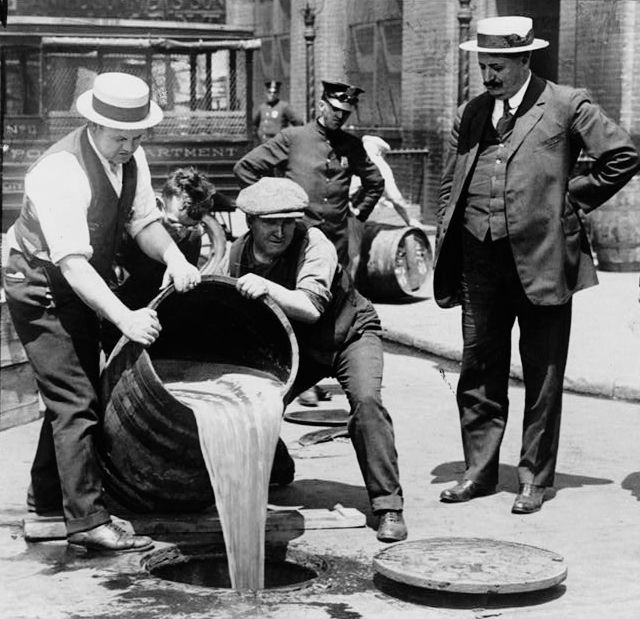In November 1933, abstemious and overwhelmingly Mormon Utah became the 36th state to ratify the 21st Amendment to the Constitution, which sealed the repeal of the 18th Amendment and ended the bizarre social engineering scheme called alcohol prohibition. In voting for repeal the state legislature defied the will of the Mormon hierarchy, which described Prohibition as a boon to public safety, citing a reduction in alcohol-related highway deaths had declined during that period.
Assuming that those lives were saved as a result of government restrictions, that benefit was easily offset by deaths directly traceable to the economics of Prohibition, and the violence associated with enforcing the policy. That casualty count included those who were killed through underworld violence as criminal syndicates consolidated their places in the illicit liquor market. Other deaths resulted from poisoning after government agents deliberately infused toxins into the industrial alcohol supply, aware that some of it was being diverted to manufacture bootleg gin.
“The government knows it is not stopping drinking by putting poison in alcohol,” declared New York City Medical Examiner Charles Norris in 1926, which is why “the United States government must be charged with the moral responsibility for the deaths that poisoned liquor causes, although it cannot be held legally responsible.”
Exhibiting moral seriousness rarely found in a government employee, Norris drilled down to the evil core conceit of Prohibition: The government (treating that evil fiction as it if were a volitional entity) didn’t care about saving lives, it merely wanted to exercise its supposed ownership of them. That mindset is manifest by the heirs to the Prohibition Bureau at the National Transportation Safety Board (NTSB) – one of countless federal agencies of dubious constitutional legitimacy.
Over the past several decades, the NTSB has been pursuing a policy that could be seen as modified, incremental prohibition by consistently lowering the recommended legal Blood Alcohol Content (BAC) level. Roughly two decades ago, the NTSB “discovered” that the previous federally recommended BAC threshold was dangerously permissive, and – using the leverage afforded by regulations and subsidies – it induced every state to impose a limit of 0.08. Now it is demanding that the limit be reduced by another one-third, to 0.05 — which, as commentator Radley Balko correctly observes, is “essentially zero tolerance.”
In classic social engineering fashion, this is being done in pursuit of an objective that is patently impossible to achieve – a complete end to alcohol-involved highway fatalities.
“There are at least 10,000 reasons to tackle this issue,” insisted NTSB chairwoman Deborah A. P. Hersman as the agency recommended that states reduce the allowable BAC to 0.05. By some calculations, this would make it possible for a person to be regarded as driving while intoxicated after no more than two drinks – and in some cases, just one. Advocacy groups that support more restrictive standards dispute those assessments, while admitting that blood-alcohol concentration varies with body type and other individual characteristics – a concession that underscores the capricious nature of the policy being promoted by the NTSB.
This week, the Utah Legislature — as if in a delayed act of penance for the sensible decision of their ancestors to sunder the shackles of Prohibition — became the first to enact a bill that would reduce the maximum allowable blood-alcohol content for drivers to 0.05 percent.
Utah already has the lowest DUI rate in the nation, and just a year ago settled a lawsuit involving a series of fraudulent DUI arrests by former State Highway Patrol Trooper Lisa Steed. Reducing the allowable BAC in Utah will be a public works project for the state’s punitive sector, while increasing the regulatory burden on “Gentile” businesses that offer adult libations in defiance of the Word of Wisdom (the Mormon health code). It will provide no measurable benefit in terms of reducing the state’s rate of DUI-related highway fatalities. It should be remembered that the purpose of Prohibition — in whatever form, however attenuated — is not to save lives, but to demonstrate the state’s supposed ownership of them.





